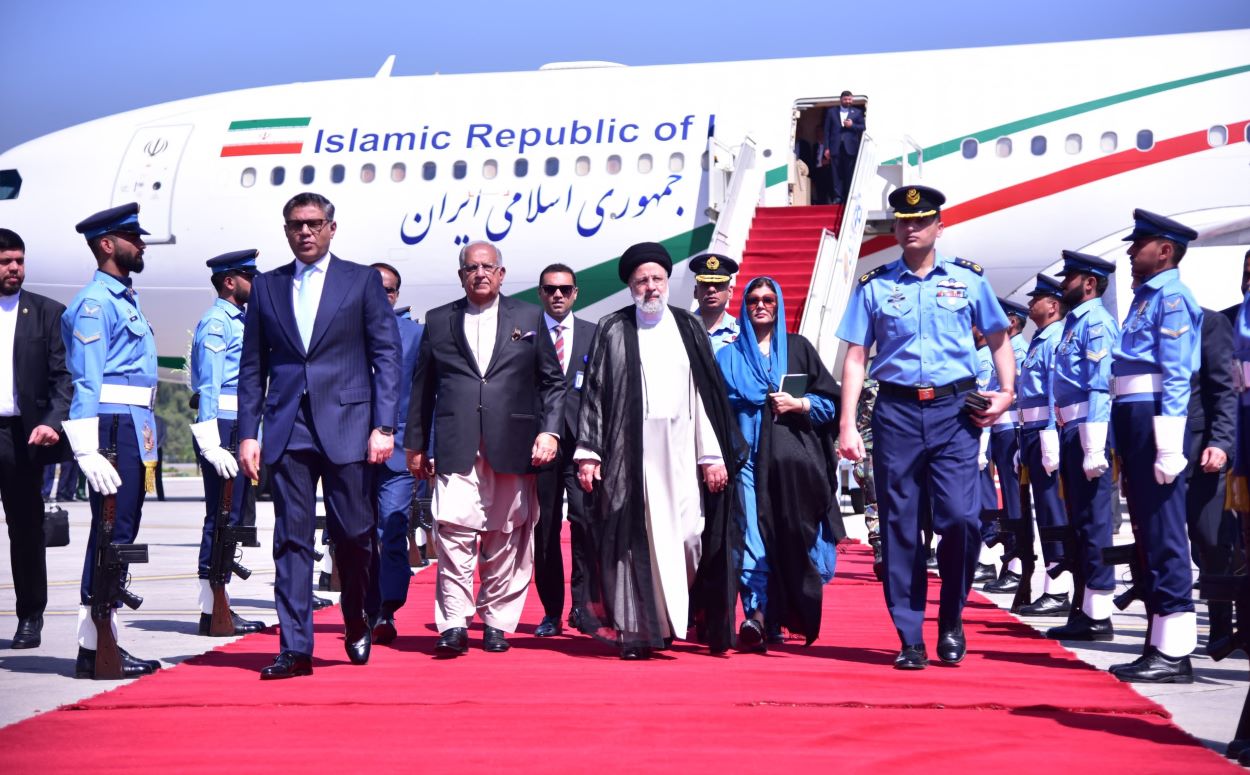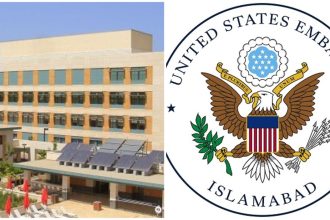Iranian President Dr. Seyyed Ebrahim Raisi is set to arrive in Pakistan today amid global scrutiny due to ongoing tensions with Israel. Despite regional uncertainties, President Raisi’s trip emphasizes the significance Tehran places on its relationship with Islamabad.
This visit, planned before the recent flare-ups with Israel, aims to repair and enhance ties with Pakistan, strained by mutual missile strikes in January.
The Foreign Office confirmed President Raisi’s visit on Sunday, stating, “From April 22 to 24, 2024, Dr. Seyyed Ebrahim Raisi will visit Pakistan. This marks the first state visit to Pakistan since the February 2024 general elections.”
Read: Karachi Declares Public Holiday on April 23 for Iranian President’s Visit
President Raisi’s spouse, the foreign minister, cabinet members, senior officials, and a substantial business delegation are accompanying him.
His agenda includes discussions with Pakistan’s top political leaders and visits to Lahore and Karachi to meet with provincial leaders.
The discussions will cover various topics to bolster Pakistan-Iran relations and cooperation in trade, energy, agriculture, and security, especially counter-terrorism efforts.
Foreign Office spokesperson Mumtaz Zahra Baloch noted, “This visit is a pivotal moment to strengthen our historical, cultural, and religious bonds with Iran.”
Despite U.S. disapproval, given its current policy of isolating Tehran, Pakistan has resisted external pressures, asserting that the visit was scheduled well before the latest regional tensions.
In the backdrop of this visit, the U.S.-sanctioned entities allegedly supporting Pakistan’s missile program were interpreted by some as a caution to Pakistan amid its hospitality towards President Raisi. Additionally, Pakistan has shown renewed interest in the Iran gas pipeline project, risking potential U.S. sanctions.
Pakistan maintains a delicate balance in its relationships with both Iran and Saudi Arabia. However, recent improvements in Saudi-Iran relations, facilitated by China last March, have eased concerns, allowing both nations to reopen diplomatic missions in each other’s capitals.






